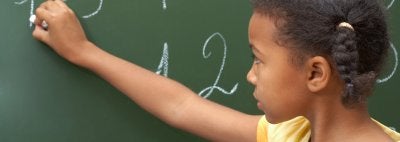

Maryland Equity Project (MEP)
Research
The Maryland Equity Project generates and synthesizes research on key issues related to educational opportunity in Maryland and nationally. We use research and policy analysis to define and understand current educational issues and to communicate research evidence to policymakers, advocates, and the public.
Our work focuses on three key areas:
Our research on the teacher workforce explores the recruitment, development, and retention of high-quality, diverse teachers.
Our research on educational equity and access explores students' access to important educational resources, like advanced coursework, and diverse and integrated schools.
Our final area of work focuses on The Blueprint for Maryland's Future, a comprehensive, multibillion-dollar reform in Maryland that aims to transform the state's education system. Our research in this area explores how Maryland districts are implementing Blueprint initiatives like teacher salary raises and Grow Your Own programs to expand and diversify the teacher workforce and the expansion of Pre-K and Career and Technical Education programs.